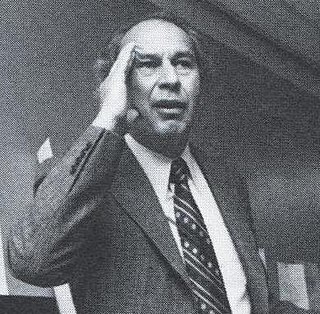A Quote by Ralph Waldo Emerson
Man is made of the same atoms the world is, he shares the same impressions, predispositions, and destiny. When his mind is illuminated, when his heart is kind, he throws himself joyfully into the sublime order, and does, with knowledge, what the stones do by structure.
Related Quotes
The authour who imitates his predecessors only by furnishing himself with thoughts and elegances out of the same general magazine of literature, can with little more propriety be reproached as a plagiary, than the architect can be censured as a mean copier of Angelo or Wren, because he digs his marble out of the same quarry, squares his stones by the same art, and unites them in columns of the same orders.
Bears are made of the same dust as we, and they breathe the same winds and drink of the same waters. A bear's days are warmed by the same sun, his dwellings are overdomed by the same blue sky, and his life turns and ebbs with heart pulsing like ours. He was poured from the same first fountain. And whether he at last goes to our stingy Heaven or not, he has terrestrial immortality. His life, not long, not short, knows no beginning , no ending. To him life unstinted, unplanned, is above the accidents of time, and his years, markless and boundless, equal eternity.
The fact that labour is external to the worker, i.e., it does not belong to his intrinsic nature; that in his work, therefore he does not affirm himself but denies himself, does not feel content but unhappy, does not develop freely his physical and mental energy but mortifies his body and his mind. The worker therefore only feels himself outside his work, and in his work feels outside himself.
A man seeks his own destiny and no other, said the judge. Wil or nill. Any man who could discover his own fate and elect therefore some opposite course could only come at last to that selfsame reckoning at the same appointed time, for each man's destiny is as large as the world he inhabits and contains within it all opposites as well. The desert upon which so many have been broken is vast and calls for largeness of heart but it is also ultimately empty. It is hard, it is barren. Its very nature is stone.
Thomas Edison reads not for entertainment but to increase his store of knowledge. He sucks in information as eagerly as the bee sucks honey from flowers. The whole world, so to speak, pours its wisdom into his mind. He regards it as a criminal waste of time to go through the slow and painful ordeal of ascertaining things for one's self if these same things have already been ascertained and made available by others. In Edison's mind knowledge is power.
Imagine the first discovery that one of these epidemics was man-made—the panic, the violence that would ensue. That’s where the end would come. A typhoon kills a few hundred people, does a few billion in damage, and what do we do?” Erskine interlocked his fingers. “We come together. We put the pieces back. But a terrorist’s bomb.” He frowned. “A terrorist’s bomb does the same damage, and it throws the world into turmoil.” He spread his hands apart like an explosion going off. “When there’s only God to blame, we forgive him. When it’s our fellow man, we must destroy him.
In the absence of government each man learns to think, to act for himself, without counting on the support of an outside force which, however vigilant one supposes it to be, can never answer all social needs. Man, thus accustomed to seek his well-being only through his own efforts, raises himself in his own opinion as he does in the opinion of others; his soul becomes larger and stronger at the same time.
He who does not meditate acts as one who never looks into the mirror and so does not bother to put himself in order, since he can be dirty without knowing it. The person who meditates and turns his thoughts to God who is the mirror of the soul, seeks to know his defects and tries to correct them, moderates himself in his impulses and puts his conscience in order.
I cannot draw a human figure if I don't know the order of his bones, muscles or tendons. Same is that I cannot draw a human face if I don't know what's going on his mind and heart. In order to paint life one must understand not only anatomy, but what people feel and think about the world they live in. The painter who knows his own craft and nothing else will turn out to be a very superficial artist.
That low man seeks a little thing to do, Sees it and does it: This high man, with a great thing to pursue, Dies ere he knows it. That low man goes on adding one to one, His hundred's soon hit: This high man, aiming at a million, Misses an unit. That, has the world here-should he need the next, Let the world mind him! This, throws himself on God, and unperplext Seeking shall find Him.










































